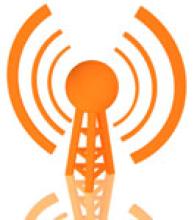
Fast, affordable Internet access for all.


A couple of months ago we wrote about the city of Tucson’s efforts to bridge the digital divide by building a wireless citywide network. On this episode of the podcast, Christopher talks with Collin Boyce, the city’s Chief Information Officer, to hear more about how the effort started, what they’ve learned along the way, and the impact it’s having on the community.
Boyce tells us about the city's efforts to bring service to the tens of thousands of Tucson residents who either didn’t have options for or couldn’t afford Internet access. He talks about building a hybrid CBRS and LoRaWAN network from the ground up, leveraging existing fiber network to bridge the digital divide but also expand the city’s tools to get smarter, reduce pollution, and increase utility efficiency.
This show is 35 minutes long and can be played on this page or via Apple Podcasts or the tool of your choice using this feed.
Transcript below.
We want your feedback and suggestions for the show-please e-mail us or leave a comment below.
Listen to other episodes here or view all episodes in our index. See other podcasts from the Institute for Local Self-Reliance here.
Thanks to Arne Huseby for the music. The song is Warm Duck Shuffle and is licensed under a Creative Commons Attribution (3.0) license.
When Collin Boyce, the City of Tucson’s Chief Information Officer, was a young boy, he left his native island country of Trinidad and Tobago with his mother and three brothers and moved to Brooklyn, New York.
“We were poor but what my mother did for us in the summertime is send us to computer camps. And because of those camps three of us are in the IT industry today and the one we call the black sheep of the family is a neurosurgeon,” Boyce said.
He was joking about his neurosurgeon brother of course. But was dead serious about how being introduced to computer technology as a young kid led him into IT work and why it means so much to him to help build Tucson’s new municipal wireless network to provide Internet connectivity for low-income school students and seniors.
“This effort is an opportunity to give back what my mother gave me,” he said.
Tucson has hundreds of miles of fiber connecting the city’s municipal buildings. But, unlike a city like Chattanooga, which operates one of the premier Fiber-to-the-Home networks in the nation allowing America’s first Gig City to provide free high-speed Internet access to 12,000 low-income students in Chattanooga throughout the ongoing pandemic, Tucson has not built a fully fiber-optic municipal broadband network.
As the COVID crisis swept across Arizona and forced students to attend school remotely last spring, Boyce began to look for a way to ensure that the thousands of students who didn’t have Internet access at home wouldn’t be left behind. In a city with a population of about 530,000, an estimated 30 percent of city residents, or about 150,000 Tucsonans, don’t subscribe to wireline broadband, Boyce said.
Standing Up a New Network
“We needed to stand up some wireless technology,” he told us this week.

Municipalities that own and control their wireless broadband networks, operate public services more efficiently, prioritize broadband traffic for emergencies, and put unused bandwidth to use to attract new businesses, afford educational opportunities to students and in many cases, provide free broadband access to unserved or underserved residents.Tropos calls for an end to preemption on community networks.
Congress should not adopt legislation that would prohibit local governments from building and operating broadband networks to provide services within a community. Local governments should have the freedom to make decisions on how they want to provide broadband within their community.And finally, Tropos harkens back to the same political battles from one hundred years ago:
A century ago, when inexpensive electricity was available to only a small fraction of the U.S. population, incumbent suppliers of electricity sought to prevent the public sector from offering electricity for many of the same reasons incumbent broadband providers now argue against community broadband deployment and services. Back then, incumbents sought to limit competition by arguing that local governments didn’t have the expertise to offer something as complex as electricity. They argued that their own businesses would suffer if they faced competition from cities and towns. Local community leaders recognized that their economic survival and the health and welfare of their citizens depended on wiring their communities. They understood that it would take both private and public investment to bring electricity to all Americans. Fortunately, they prevailed.